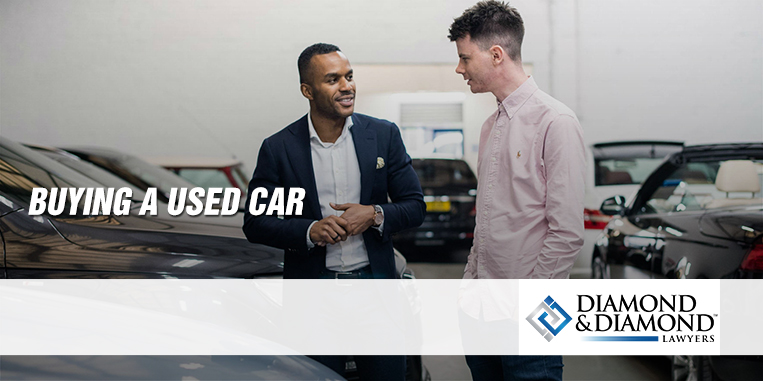Buying a car can be both an exciting and stressful time. You want to be sure that you are getting a vehicle that is safe, reliable, and a good use of your money. You also want to buying a used car to get something that you love.
You may have heard stories of unscrupulous car dealers that try to trick innocent car buyers into buying cars that may look good but do not run well. You can take steps to protect yourself from these types of situations by knowing your rights when you buy a used car.
Read and Understand the Buying Contract
Be sure to read your agreement to buy very carefully before you sign on the dotted line. You should be able to comprehend everything in the contract. Be sure to ask questions if you do not understand it completely. There is no opportunity to change your mind once you have signed. Make sure that you can handle the commitment of making payments or can make payment in full at the time of purchase because there is no going back!
Purchase Your Vehicle Only from Trustworthy Sources
Both private sellers and dealers can sell used cars. A dealer is considered anyone who buys and sells cars to earn an income. A private seller, on the other hand, may simply just want to get rid of an old car and may make some money on the transaction, but they do not regularly sell vehicles.
Dealers are required to be licensed with the Vehicle Sales Authority of BC. They must also follow certain laws and regulations. Do not buy a car from someone who is not authorized to sell, often referred to as a “curber.” You can check online to determine whether a potential dealer is licensed properly.
Getting Information from the Dealer
Both the Business Practices and Consumer Protection Act and the Motor Dealer Act provide consumers with certain rights when it comes to purchasing vehicles. For example, cars must meet certain minimum safety requirements before they can be sold to the public. If they do not satisfy these standards, then they are marked as being “not suitable for transportation.”
A dealer is required to provide you with the following information in writing:
- Whether the car has had damage that cost more than $2,000 to repair
- Whether the vehicle has been registered outside of British Columbia
- Whether the car has ever been used as a taxi, emergency vehicle, rental vehicle, police car, or in organized racing
- The accurate mileage and the model year (and whether the odometer is correct)
In addition to the above information about the car, a dealer is required to explain your charges and costs in connection to buying a car as well. This includes providing information regarding dealer preparation costs, taxes, license and insurance fees, interest expenses if the seller is financing the vehicle, and document and administrative fees. They should also share the costs of any additional options or repairs that you have opted to receive. Of course, they should provide you with the total cost as well.
Finding Additional Information
You can often obtain information about whether the car has been in an accident from the Insurance Corporation of BC. If a car has been in a collision, that may lower its value. The ICBC has many records for vehicles, but not all of them.
You can also check to see if the vehicle has any liens against it by checking the Personal Property Registry or CarProof. Both CarProof and ICBC can provide a vehicle history report as well.
British Columbia Personal Injury Lawyers
If you have purchased a used car and been in an accident, you may have a legal claim against the dealer. Call our 24/7 injury hotline at 1-800-567-HURT or visit our website to speak to someone now about your claim.
